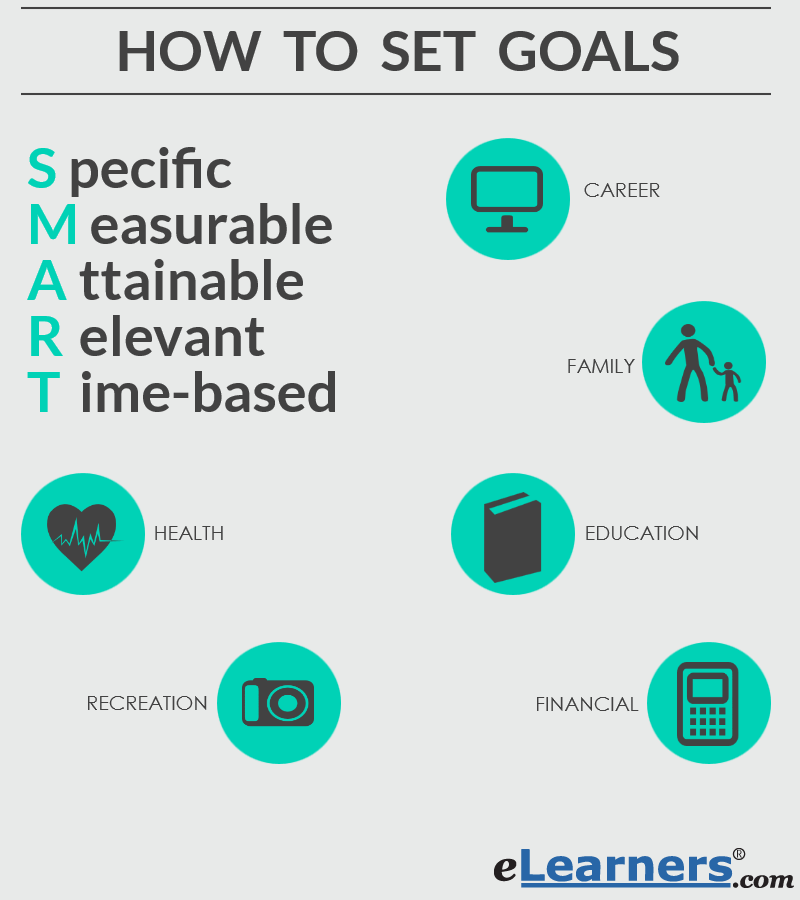 “I want to be a fireman.”
“I want to be a fireman.”
“I want to be famous.”
“I want to be rich.”
These are common childhood dreams, and for some of us, these goals linger in the back of our minds into adulthood. There’s nothing wrong with these goals, per se, but they will remain in the ether unless we give them grounds to stand on.
For example, instead of having “I want to be a fireman” as a goal, it is more powerful to say “I will enroll in a fire science program in the fall of 2010.” Rather than saying, “I want to be rich,” you will have a better chance of increasing your earnings potential by setting this goal, “Take an online course in personal finance next semester” or “Finish at least two courses in entrepreneurship by the end of the year.”
Setting SMART Goals
A helpful approach to setting realistic—yet challenging—goals is to use the SMART mnemonic. SMART often stands for the following:
- Specific: Make goals specific, not general or generic.
- Measurable: Specify a date to start or finish a task. Identify how much or how many, such as, “Study for one hour without distractions tonight” or “Get at least 80% correct on the test.”
- Attainable: Set challenging—yet attainable—goals. If the goal is impossible (“I want to earn my Ph.D. in one year” or “I want to lose 10 pounds in one week”), you won’t commit to it. But if you set manageable goals, you’ll figure out what you need to do to achieve it.
- Relevant: Is your goal significant and important in the scheme of your life? Are you taking relevant actions to progress toward that goal?
- Time-based: Set a specific target date to achieve your goals—next week, next year, by the time you’re forty years old…If you don’t set time-based goals, it’s easy to delay getting started. In other words, the goals will remain elusive dreams.
My Lifetime Goals at a Glance
To get a handle on what you really want for your life, consider the following categories. Set a goal for each category. Is it a goal that you can attain within a year? Ten years?
- Attitude: What is your outlook on life? How would an improved attitude or behaviors help you in daily life? How can you resolve problems that currently block progress toward your goals?
- Career: What level do you want to reach in your career? Do you want to change careers or advance in your current career? If so, what do you need to do to make the change?
- Education: What new knowledge and skills do you want to learn? Will you enroll in a single course to achieve this? Or would you be better served in a certificate, degree, or master’s program?
- Family: Do you want to be married? A parent? An involved grandparent? What is your timeline?
- Financial: How much do you want to earn? Are you saving money for emergencies or retirement? What can you do to increase your earnings potential?
- Health: What are you going to do to establish good habits for nutrition, exercise and self-care?
- Recreation: How do you like to spend your free time? Are there any new hobbies or activities you’d like to try?
- Community Service: Do you have skills, knowledge or time that you can share with your community? Plan ways to give back.
Reflect on the lifetime goals you’ve outlined. Are they “SMART” goals? Prioritize them from most to least important. Then for each goal, identify the steps you need to take (and can take) now in order for them to come to fruition. What can you do tomorrow to start attaining your top priority goal? What can you do today?
Now, you’re not just California Dreamin’. You’re on the road to achieving realistic, grounded goals. Ready? Set! Goal!
